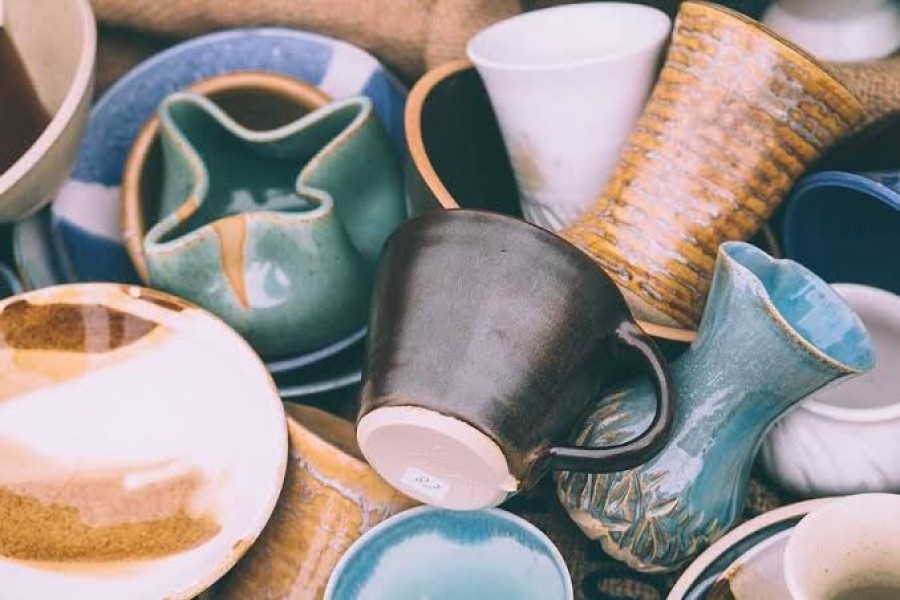Of the several objectives a host country has behind arranging an exposition of international order, the principal ones are expansion of business overseas and at the same time taking a measure of competing nations or companies abroad. That the Bangladesh Ceramic Manufacturers and Exporters Association (BCMEA) is going to hold a three-day 'Ceramic Expo Bangladesh 2019' from tomorrow (December 5) shows the industry has indeed come of age. Currently 56 ceramic manufacturers have been producing high quality ceramic kitchenware and showpieces. Another 12 are soon to venture into this field of great prospect. With investment in the ceramic sector going up by 20 per cent, production has reportedly soared by 200 per cent over the past decade. Quite a feat, no doubt! Right now the sector earns foreign exchange to the tune of US$50 million annually, which accounts for 3.0-4.0 per cent of the global market share.
Clearly the earning would have been more had the ceramic industry not been compelled to work against many odds. Manufacturers rightly compare their industry with the apparel sector as both are heavily dependent on imported raw materials. Now release of raw materials in the shortest possible time at Chattogram seaport can make a lot of difference. When a mother vessel carrying raw materials has to wait for long 20 to 60 days at the port, the importers have to count demurrage. This is definitely anti-industry and anti-business. Such delays at times bleed the manufacturing units doubly because in addition to demurrage, the operation of factories also gets hampered. It is a genuine grievance and has to be addressed soon in the interest of realising the sector's huge potential. So far as the demand for raising the cash incentive from 10 per cent to 20 per cent is concerned, it should receive a dispassionate hearing too.
After all, here is a sector that has employed directly or indirectly 0.5 million people. The industry stands on an investment of Tk 85 billion. Further investment and expansion of business are likely to create employment opportunities for more people. As long as the Chattogram seaport cannot minimise the delivery of imported raw materials within a reasonable time, options for other import routes -even if it is on land -may be explored. Better it would be if the possibility of backward-linkage to the industry could be developed within the country or in neighbouring countries.
The ceramic industry has indeed come a long way and quietly so. Its prospect, as everyone can see, is bright. True, the country still lags behind France and Italy so far as the texture, colour and designs are concerned. But its products can more than satisfy the tastes of the middle class people anywhere in the world. On that count, the products like apparels are not the higher-end type. But neither are those low-end too. Here ceramic goods enjoy an edge over apparel products. Marketing of ceramic products abroad will require pragmatic drives. The expo hopefully will earn ceramic companies orders from foreigners attending it. A sector like this has to transcend its boundaries all the time to stay in customers' reckoning.


